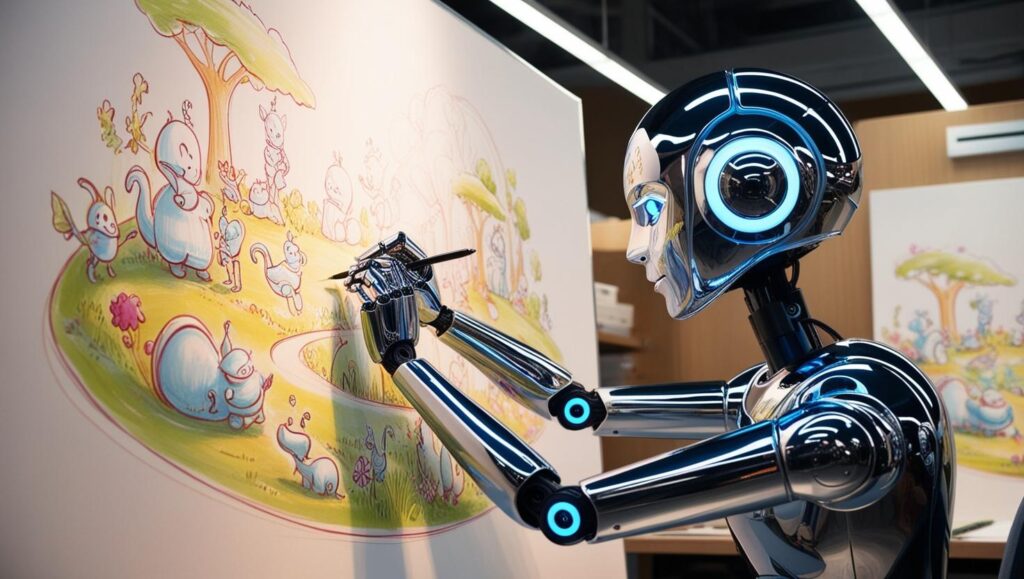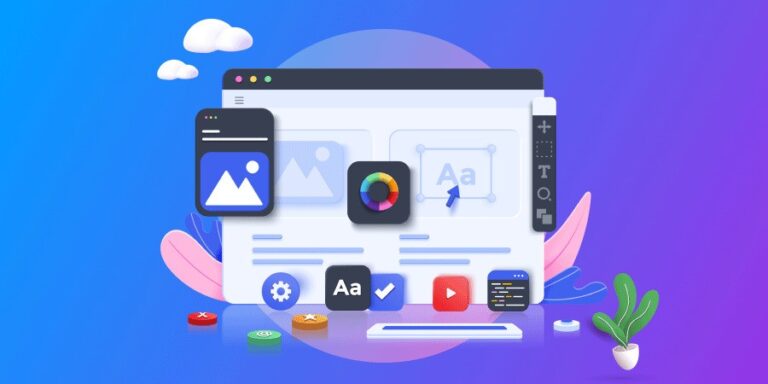Introduction
The future is here, and artificial intelligence (AI) is at the heart of it. From enhancing business operations to transforming healthcare, education, and our daily lives, AI is no longer a futuristic concept—it’s an ongoing revolution. As AI continues to evolve, it will undoubtedly redefine how we work, live, and interact with technology. But how exactly is AI going to affect our future? Let’s dive into the major areas where AI is making a significant impact.
1. The Future of Work: Automation and Augmentation
One of the most prominent effects of AI is in the workplace. While many people worry about AI replacing jobs, the reality is a lot more nuanced. AI will undoubtedly automate repetitive tasks, allowing employees to focus on higher-value, creative, and strategic work. For example, AI-powered tools can handle data entry, customer service inquiries through chatbots, and even complex tasks like data analysis and prediction models.
However, this automation doesn’t mean the end of human workers. Instead, AI will serve as an augmentation tool. Employees will use AI as a tool to enhance their decision-making and productivity. In fields such as healthcare, finance, and marketing, AI will assist professionals in making more informed decisions by providing real-time data analysis and trend predictions.
2. Transforming Healthcare: Personalized Medicine and Predictive Diagnostics
The healthcare industry stands to benefit immensely from AI advancements. AI is already being used to assist doctors with diagnosing diseases, interpreting medical images, and even predicting health outcomes based on genetic data. In the future, AI will enable the development of personalized medicine tailored specifically to an individual’s genetic makeup, lifestyle, and health history.
Moreover, AI-powered predictive tools can identify health issues before they become critical, giving healthcare providers the ability to intervene early and potentially save lives. From virtual healthcare assistants to automated surgeries, AI’s role in healthcare will continue to expand, making it more efficient and accessible.
3. AI and Education: Revolutionizing Learning and Teaching

In education, AI is already making waves. With personalized learning experiences powered by AI, students can receive custom-tailored lessons based on their learning styles, pace, and strengths. AI-driven educational tools can provide real-time feedback and identify areas where students may need additional support, helping teachers focus their efforts where they’re needed most.
Moreover, AI can automate administrative tasks such as grading, scheduling, and managing class attendance, giving educators more time to engage with their students. In the future, AI-powered tutors could provide students with 24/7 support, helping them through challenges and offering personalized lessons to reinforce learning.
4. AI in Everyday Life: Smarter Homes and Cities
AI is already integrating into our daily lives through smart home devices, like voice assistants (think Alexa or Google Assistant) and appliances that can learn our preferences. In the future, AI will expand these capabilities even further. Imagine a home that understands your routines, optimizes your energy usage, and prepares meals based on your nutritional preferences—all while ensuring the highest level of security through AI-powered surveillance.
Beyond the home, AI will transform cities. Smart cities powered by AI will improve infrastructure, traffic management, and energy consumption. AI will collect and analyze data to optimize everything from public transport schedules to energy grids, creating a more efficient, sustainable environment for urban dwellers.
5. AI in Creativity: The Intersection of Technology and Art

While AI’s capabilities in logical tasks are well-known, its impact on creativity is just beginning to unfold. AI can now generate music, art, and even write novels and screenplays. Tools like OpenAI’s GPT-3 can generate human-like text, while platforms like DeepArt can create stunning pieces of artwork.
In the future, AI will not only assist artists and creatives but may also become a collaborative partner in the creative process. Artists might use AI to explore new forms of creativity, creating art, music, and literature that was previously unimaginable. This partnership between humans and AI will redefine what it means to be creative.
6. AI and Ethics: The Need for Responsible Development
As AI continues to shape our future, it’s essential to consider the ethical implications. The rapid development of AI raises important questions about privacy, bias, job displacement, and security. To ensure that AI is used responsibly, governments, businesses, and developers must collaborate on creating regulations and ethical standards.
Transparency and accountability will be key in the development of AI technologies. For instance, AI systems must be designed to avoid biases that could unfairly affect certain groups of people, such as in hiring practices or law enforcement applications. Additionally, as AI continues to collect and analyze vast amounts of personal data, data privacy protections must be enforced to safeguard individual rights.
7. AI and Sustainability: A Greener Future

AI has the potential to play a critical role in addressing global challenges like climate change and resource depletion. From optimizing energy consumption in industrial processes to predicting climate patterns and improving agriculture through precision farming, AI can be a powerful tool in the fight against environmental degradation.
For example, AI-powered systems can help monitor and manage natural resources more efficiently, ensuring sustainable practices are adopted in industries like agriculture, mining, and manufacturing. AI can also aid in creating smarter recycling processes and reducing waste by optimizing supply chains and production methods.
Conclusion: Embracing the Future with AI
The future with AI is full of promise and challenges. As AI continues to advance, it will transform industries, improve our quality of life, and redefine the way we work and interact with technology. However, as with any powerful tool, it’s essential to approach AI development and integration responsibly. By ensuring that AI is developed ethically and inclusively, we can harness its full potential to create a better, smarter, and more sustainable future for all.
Whether it’s in healthcare, education, creative industries, or daily life, AI is poised to be a game-changer, and we are only beginning to scratch the surface of its capabilities. The key to embracing the future with AI is understanding its transformative power while preparing for the new challenges it will bring.



